When asked about their religion, many Japanese people will simply say, “I have no religion.” However, they still visit shrines for New Year’s prayers, hold Buddhist memorial services for their ancestors, and celebrate Christmas with cake. From an outsider’s perspective, the Japanese approach to religion can seem utterly baffling.
So, why do Japanese people have such a unique view of religion? Let’s take a closer look.
1. No Religion, Yet Participating in Religious Events
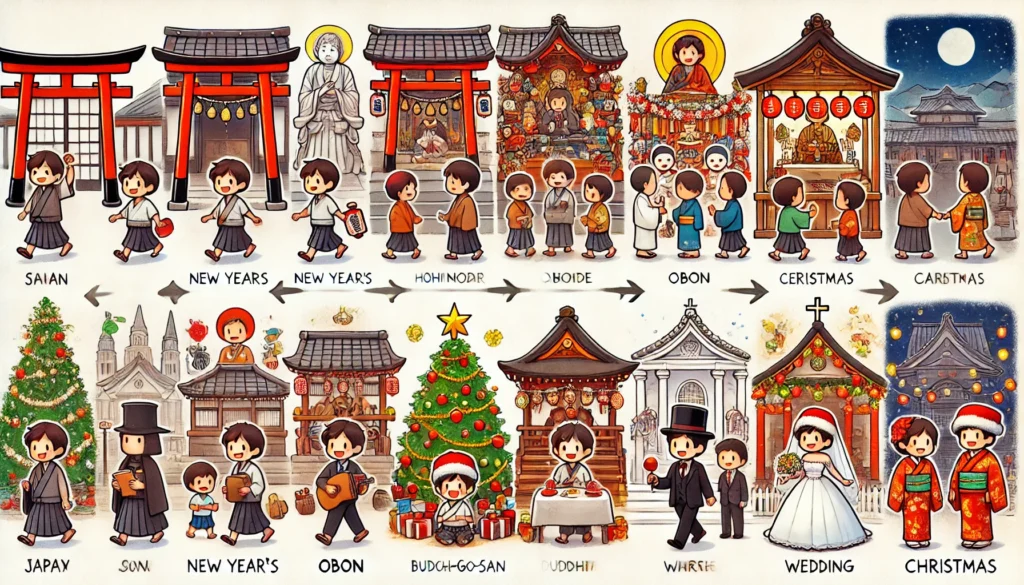
Even though most Japanese claim to be non-religious, they actively participate in various religious events throughout their lives:
• Hatsumode (New Year’s shrine visit)
• Obon (Buddhist ancestral memorial festival)
• Shichi-Go-San (Shinto ritual for children)
• Christmas (A Christian holiday, but in Japan, more of a commercial event)
• Weddings (Options include Shinto, Buddhist, or Christian ceremonies)
One particularly strange example is that many Japanese couples opt for Christian-style weddings with a white dress and a “pastor,” despite having no connection to Christianity whatsoever.
2. Everything Can Be a “God”
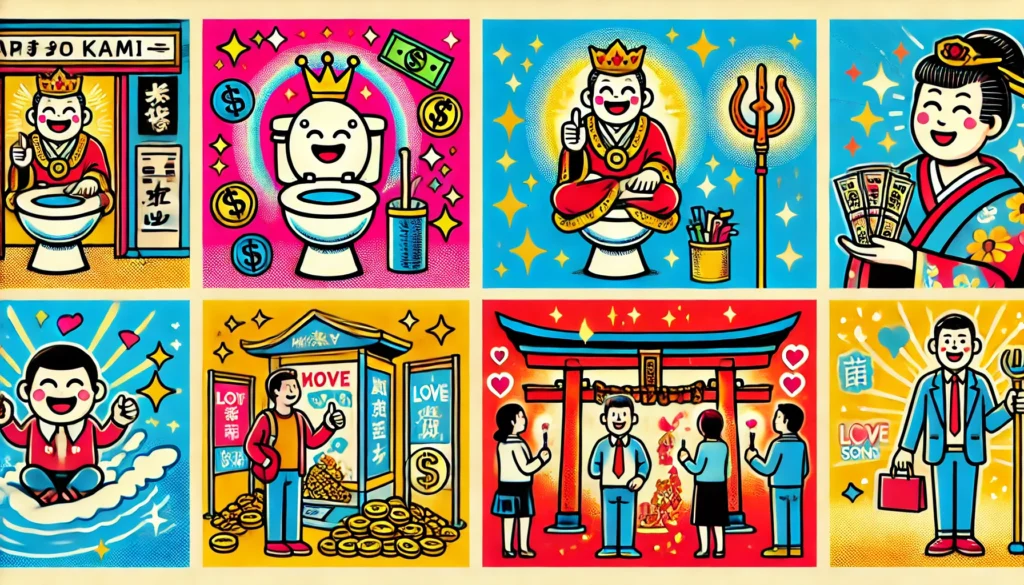
Japan has the concept of “Yaoyorozu no Kami” (literally, “Eight Million Gods”), meaning that gods can exist in all things. As a result, Japan has an astonishing variety of deities:
• Toilet gods (Clean your toilet for good fortune)
• Money gods (Pray at certain shrines to win the lottery)
• Business success gods (Popular among entrepreneurs)
• Love gods (Shrines famous for matchmaking are always crowded)
• Even anime characters are called “gods” (e.g., “Kami song” for an amazing track, “Kami response” for excellent service)
Because of this broad interpretation of divinity, many Japanese believe in gods without necessarily being religious.
3. The Unusual Mix of Buddhism and Shinto
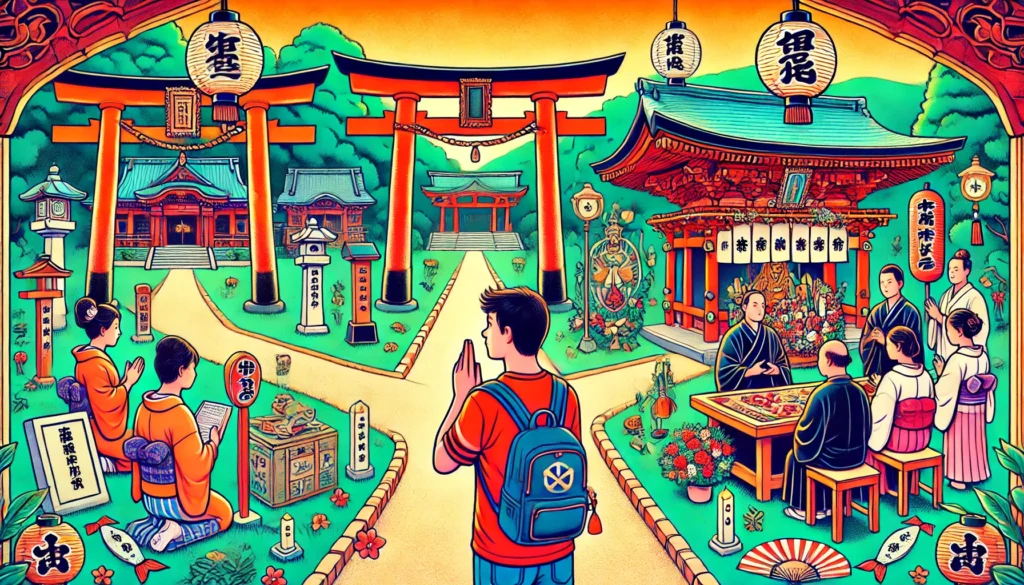
Japan has both Buddhist temples and Shinto shrines, but most Japanese don’t strictly distinguish between the two:
• Pray for exam success at a Shinto shrine
• Hold funerals and ancestral memorials at a Buddhist temple
• Visit a shrine or temple for good luck, depending on personal preference
Unlike many countries where religious affiliation is a serious matter, Japan’s flexible approach allows for a mix-and-match style that is nearly unheard of elsewhere.
4. Less About Faith, More About Benefits
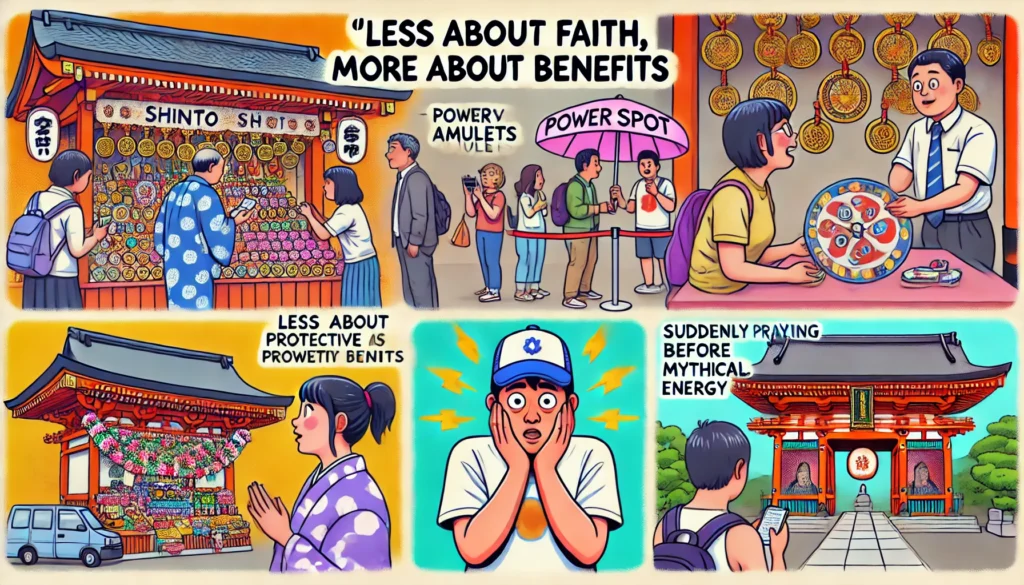
Rather than believing in a religion, Japanese people tend to focus on practical benefits or “Goriyaku” (divine favors):
• Buying amulets at shrines for protection
• Going on power spot pilgrimages
• Suddenly praying before an exam despite never visiting a shrine otherwise
• Being skeptical of organized religious groups, even while engaging in religious practices
This “pray only when in trouble” attitude makes Japan’s approach to religion very different from many other cultures.
5. Religious Events Turned into Commercialized Festivals

With religious awareness being relatively low, many originally religious events have become more about fun:
• Christmas → A romantic date night (no connection to Christianity)
• Halloween → A massive costume festival (religious significance completely ignored)
• Valentine’s Day → A day for women to give chocolate (very different from the Western tradition)
Japan has a talent for transforming religious traditions into enjoyable social events, further separating religion from belief.
6. The “No Religion” Yet “Somehow Religious” Paradox
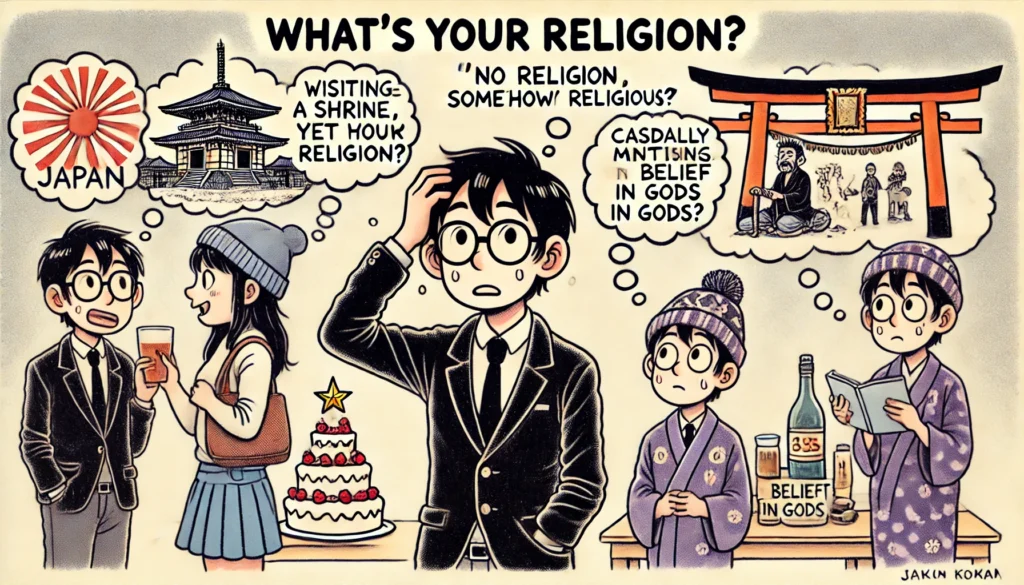
In many countries, religion is deeply tied to identity, and people expect to be able to answer the question, “What’s your religion?” However, in Japan, the response is often confusing:
• “Umm… I visit shrines for New Year’s, but I also celebrate Christmas…”
• “I’m not religious, but I do believe in gods.”
• “I guess I’m Buddhist? But I don’t really know much about it.”
This “loose” religious identity is something that surprises many foreigners.
Conclusion
Japan’s religious culture is uniquely flexible and diverse:
• Non-religious, yet engaging in religious events
• Mixing Shinto and Buddhism without concern
• Focusing on benefits rather than faith
• Turning religious festivals into commercial events
This “anything goes” approach to religion is deeply rooted in Japan’s history and culture. While it may seem chaotic to outsiders, it reflects the Japanese tendency to adapt and blend different traditions harmoniously.
Understanding this unique perspective can help us appreciate Japan’s fascinating cultural quirks even more!

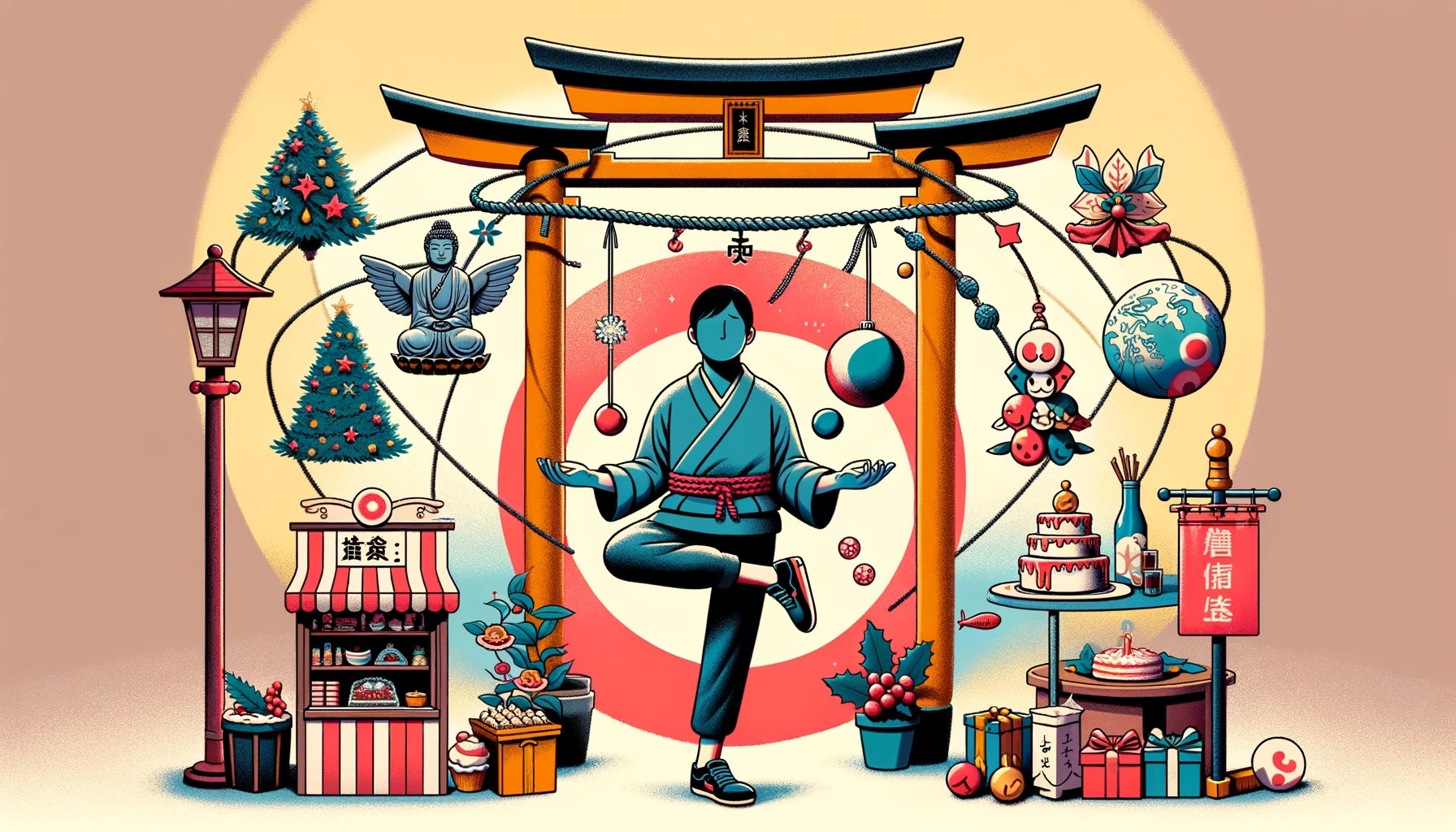


Comments